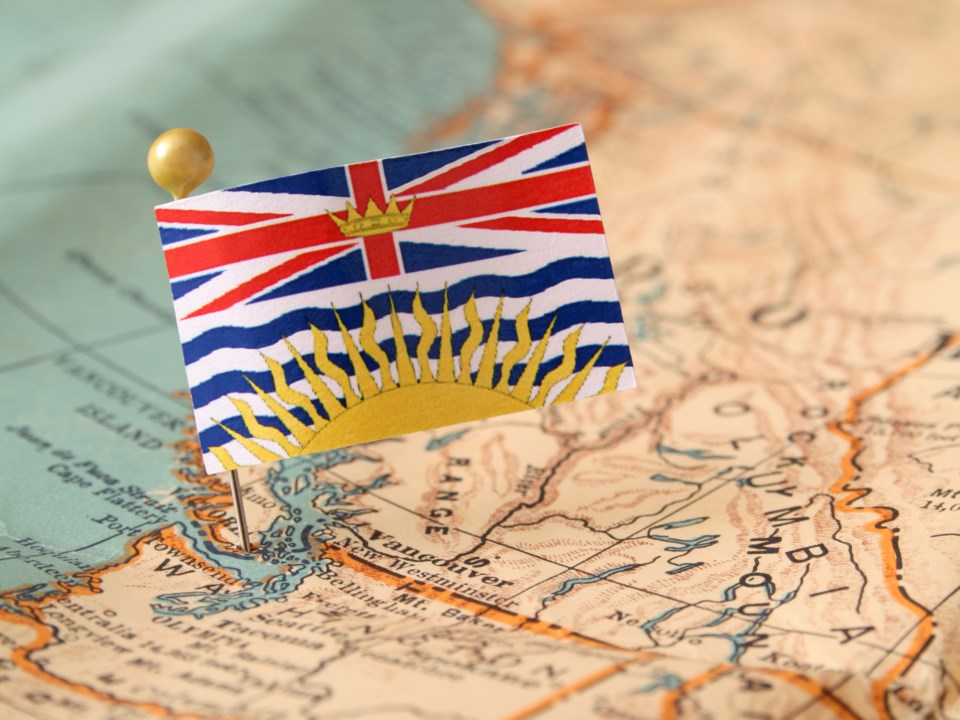Every summer, Research Co. and Glacier Media measure the sentiments of British Columbians on various aspects of life in the province, as well as our opinions on the men and women who have headed the provincial government. This year’s survey shows remarkable stability on some questions, as well as hardening feelings for the last three individuals to serve in the premier’s office.
When we compare this year’s findings to 2021, we do not see a significant change on the question related to belonging. Only 22 per cent of the province’s residents (unchanged) consider themselves “British Columbians first and Canadians second.” More than three in five (63 per cent, up two points) say they are “Canadians first and British Columbians second.”
Even if most residents of the province do not identify primarily as British Columbians, more than four in five (82 per cent, down two points) are “very proud” of the province that they live in.
The concept of “Cascadia” remains in the minds of residents, not only due to an affinity with the residents of neighbouring American states but also because we perceive our opinions to be distinctive from what happens out east. More than three in five respondents (62 per cent, up three points) think British Columbians have more in common with the people of Seattle and Portland than with those in Toronto or Montreal, and a similar proportion (59 per cent, up two points) think the views of British Columbians are different from the rest of the country.
What is truly striking about these findings is that the notion of a British Columbia that is unique in Canada is coming heavily from those aged 55 and over. Two-thirds of the province’s oldest residents both express a higher sympathy with Oregon and Washington State (66 per cent) and clear differences from what people in Quebec or Ontario may think (67 per cent).
The sentiment of uniqueness is not accompanied, as has been the case in Alberta and Quebec, by a sense of independence. Only 19 per cent of British Columbians (down one point) think the province would be better off as its own country. This feeling is slightly more pronounced among residents of southern B.C. (31 per cent) and those aged 18 to 34 (27 per cent).
Still, not every finding in this survey provides reassurance. At a time when housing, homelessness and poverty remain the most important issue facing the province, some residents continue to lose faith about their future in British Columbia.
More than seven in 10 British Columbians (72 per cent, down three points) believe they will stay in the province for the rest of their lives. The proportion of residents who foresee a future without migration falls to 56 per cent among those aged 18 to 34, down from 61 per cent in 2021.
When we asked British Columbians about the best provincial head of government that the province has had since August 1986, three in 10 (30 per cent) select John Horgan of the BC New Democratic Party (NDP). His two predecessors – Christy Clark and Gordon Campbell of the BC Liberals – are tied for second place at seven per cent.
It is important to note that practically two in five British Columbians (39 per cent) are undecided when asked to name the best recent premier. As expected, a majority of people who supported Horgan’s party in the 2020 provincial election (55 per cent) select him from the list of nine names.
Clark reaches double digits as the best recent head of government in northern B.C. (12 per cent) and southern B.C. (11 per cent), where she served in the final years of her tenure. Campbell, who won majority mandates in three elections, climbs to 11 per cent among male British Columbians.
When asked about the worst recent premier, British Columbians also gravitate towards the last three heads of government. Clark is in first place with 19 per cent; Horgan and Campbell are tied at 10 per cent. More than a third of residents (36 per cent) are undecided.
Animosity towards Clark is more evident among certain groups, particularly British Columbians aged 55 and over (25 per cent), those in the lowest income bracket (24 per cent) and residents of Vancouver Island (23 per cent).
There were not many surprises in the data this year. We continue to see a province where residents are proud and convinced that our views are unique, but certainly not at a level that would make us abandon our identification with Canada or flirt with sovereignty. A key area of concern is how many young residents assume that the dream of growing old in British Columbia will be out of their reach.
Mario Canseco is president of Research Co.
Results are based on an online study conducted from August 20 to August 22, 2022, among 800 adults in British Columbia. The data has been statistically weighted according to Canadian census figures for age, gender and region in British Columbia. The margin of error, which measures sample variability, is plus or minus 3.5 percentage points, 19 times out of 20.



